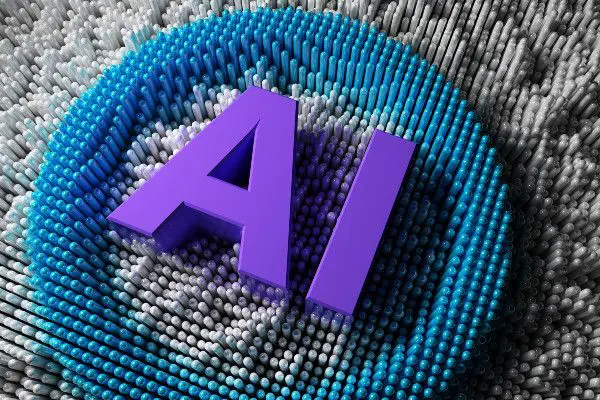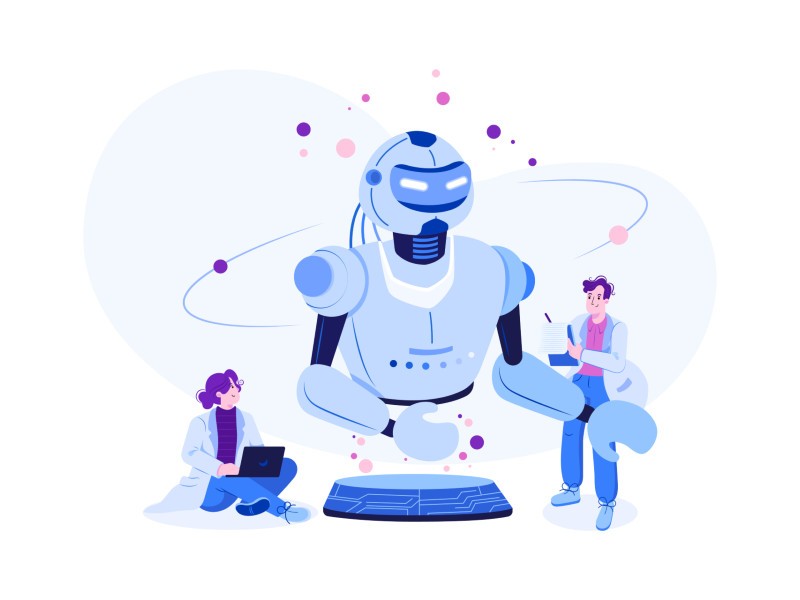Introduction
We live in an era where technology continues to transform every aspect of our lives, and the entertainment industry is no exception. Artificial Intelligence (AI) is quickly becoming a pivotal player in shaping how we consume and interact with entertainment. This transformation is not merely incremental but is fundamentally changing how music, movies, games, and virtual experiences are created, delivered, and enjoyed.
Through this lens, let’s embark on a journey to explore the exciting narrative of AI’s growing impact on entertainment. This isn’t just a tale of tech enthusiasts but a story for anyone who cherishes the joy, creativity, and shared experiences of entertainment. From music and films to gaming and virtual reality, the influence of AI is expansive and profound.
So, grab your virtual ticket, tech enthusiasts, and let’s dive into the AI-driven evolution of the entertainment industry.
Artificial Intelligence and Deep Learning with Python
Are you wearied by deep learning resources that don’t clarify every single line of code? “Artificial Intelligence and Deep Learning with Python” revolutionizes the way deep learning, AI, and Python are introduced to beginners. The author draws an insightful analogy, equating a computer language with any other language, asserting that understanding every component of a sentence or a line of code is vital to generate novel ones. Unlike other resources claiming to be for “beginners”, this book stands out by dissecting and explaining every line of code.
There’s nothing more perplexing than encountering an unexplained line of code after an initially well-explained one. This book ensures a seamless learning journey with comprehensive explanations for each line of code in every project discussed, along with detailed insights into deep learning and AI concepts. Whether you’re a Python novice or a seasoned programmer, this book will guide you through the intriguing applications of Python in diverse AI and deep learning projects.
You’ll dive into captivating projects and topics, including:
- Deep learning applications in audio/music and voice recognition
- Neural network implementations with image files
- Creating an algorithm for predicting stock prices
- Applying AI through Thompson sampling
- Using deep learning for crime statistic predictions
- Binary classification with neural networks
- Building a Convolutional Neural Network (CNN) for your image files
- Teaching your computer to “read” and “comprehend” the English language
- SQL integration with neural networks
About the author: Steven D’Ascoli, an adjunct professor at St. John’s University, is renowned for his multi-disciplinary expertise.
The Role of AI in Modern Entertainment
Artificial Intelligence’s influence on modern entertainment is multidimensional, impacting content creation, delivery, and user interaction. Algorithms can now recommend personalized content based on our viewing habits, music preferences, and gaming history. Content creators also utilize AI for editing, animating, and even scripting. From chatbots engaging with viewers to AI predicting box-office hits, the modern entertainment world brims with AI’s compelling narratives.
In social media entertainment, platforms like TikTok use AI to customize user feeds, optimizing the enjoyment and engagement based on individual user behavior. This AI-driven personalization not only enhances user experience but also drives user retention and engagement for the platform. TikTok
How AI is Shaping the Music and Film Industry
AI is playing a melody of transformation in the music industry. It aids in music composition, creates personalized playlists, and even predicts the next big hit. On the film front, AI aids in everything from editing, special effects, to predicting box-office success.
Amper Music, for instance, is an AI-driven music platform that composes unique music in seconds. This tool is a boon for filmmakers and video creators who require original soundtracks. Amper Music
In films, script analysis tool like ScriptBook leverages AI to predict the financial success of a film before it hits production. This predictive insight allows film producers to make more informed decisions. ScriptBook
Which of the following industries commonly requires data entry tasks?
AI in Gaming: Changing the Way We Play
Artificial Intelligence has taken the gaming world by storm, enhancing both the gaming experience and game development process. From complex non-player characters (NPCs) to dynamic game scenarios that adapt to player behavior, AI is altering the landscape of gaming.
AI’s role in enhancing NPCs and in-game ecosystems has been pivotal. DeepMind’s AlphaStar, for instance, is an AI agent that plays the real-time strategy game StarCraft II at a competitive level. It showcases how advanced and strategic AI players can be in gaming scenarios. DeepMind
On the development side, AI can generate complex gaming environments. Promethean AI assists artists in creating rich and detailed virtual worlds, significantly reducing development time and resources. Promethean AI
The Impact of AI on Virtual Reality and Augmented Reality
AI’s impact goes beyond the conventional entertainment spaces, marking a significant imprint on Virtual Reality (VR) and Augmented Reality (AR) experiences. AI algorithms can create hyper-realistic virtual environments, enhance user interaction, and provide personalized VR/AR experiences.
Take, for instance, the application of AI in creating realistic virtual characters. Facebook’s Codec Avatars project uses AI to generate hyper-realistic avatars based on a 3D scan of the user, making VR interactions feel more lifelike. Codec Avatars
On the AR front, Google’s ARCore uses AI to understand the environment better, enhancing the immersion and realism of AR experiences. ARCore
AI and the Future of Entertainment
As we gaze into the future of entertainment, it’s clear that the tune of AI will continue to play a central role. From the creation of personalized and immersive experiences to breaking new ground in VR and AR, AI is set to continually redefine entertainment.
In terms of content creation, AI might take on an even bigger role. Tools like OpenAI’s GPT-3, which can write its scripts, offer a glimpse into a future where AI could even take the role of a director or scriptwriter. OpenAI
AI will also continue to drive personalization to new levels. Imagine a future where a Netflix show evolves its storyline based on your preferences, or a Spotify playlist composed of songs specifically created for you by an AI. These scenarios might not be far from reality.
Conclusion
The symbiotic relationship between AI and the entertainment industry is one of the most fascinating tales of our modern era. It’s a tale of transformation, creativity, and a dash of science fiction made real. It’s evident that AI is not merely an auxiliary tool but a core component that’s redefining the way we experience and interact with entertainment.
From personalizing our music playlists to enhancing the realism in our VR experiences, AI has its fingerprints all over the entertainment landscape. This influence isn’t static but dynamic and continually evolving. The role of AI in shaping the music and film industry, the gaming landscape, and the world of VR and AR is profound and expansive.
The future of entertainment, viewed through the AI lens, is not only intriguing but also overwhelmingly exciting. As AI continues to learn, adapt, and evolve, we are set to witness a revolution in the entertainment world, one AI-driven narrative at a time.
As the curtain falls on our exploration, one thing is clear – in the world of entertainment, AI has undoubtedly taken center stage. So, sit back, relax, and enjoy the AI show because the future of entertainment promises to be nothing short of spectacular.

Redefining Business Conversations: A Deep Dive into the ChatGPT Login Experience
83 / 100 Introduction In the age of digital transformation, businesses are increasingly harnessing the power of AI to streamline operations, boost productivity, and deliver



